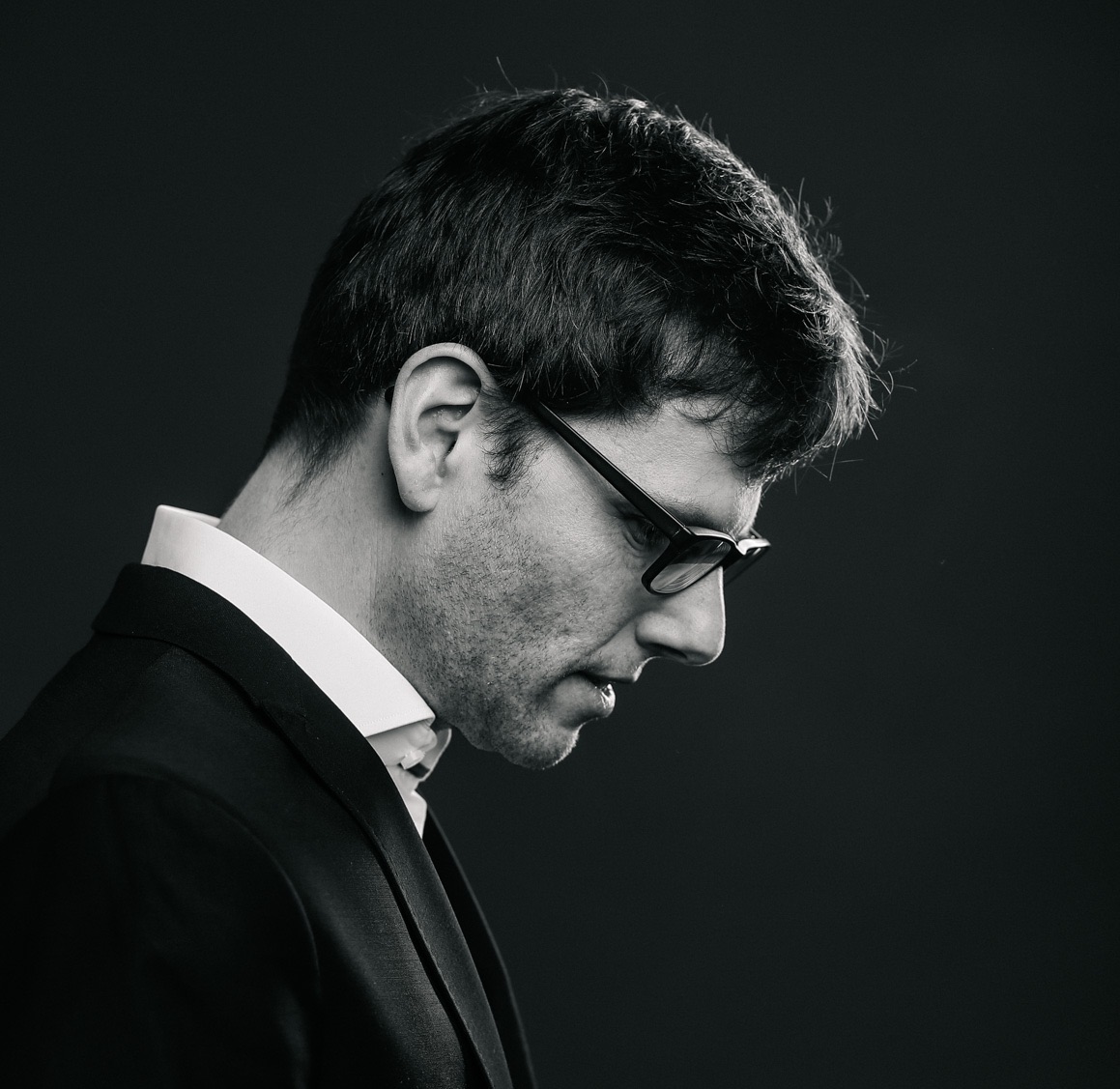Reto Stadelmann - Biography


Reto Stadelmann (b. 1977) is a composer, pianist, and conductor whose multifaceted work builds a unique bridge between deeply rooted Swiss tradition and the progressive currents of contemporary music. His musical language is characterized by originality, emotional depth, and impressive stylistic breadth, developed through a solid academic education and tireless artistic research. As a boundary-crosser between different musical worlds, Stadelmann creates soundscapes that invite discovery and profoundly move a broad audience.
Reto Stadelmann's musical career began in the heart of the Swiss Alps, in Entlebuch (Escholzmatt), within a family strongly influenced by folk music. His father, the renowned Swiss yodeler Franz Stadelmann, in particular, laid the foundation for Reto's deep musical grounding. One of his early compositions in the folk style, "Bärgandacht" from 1996, became a bestseller and remains among the most sung yodeling songs in Switzerland today. This early influence acts as a subtle, authentic element throughout his work, without ever falling into clichés.
His formal musical education led Reto Stadelmann beyond jazz theory and a school music diploma in Lucerne (2000) into the international world of composition. He completed a Bachelor's degree (BMus Hons) with distinction at the London College of Music and Media (2002), where he was honored with the Westminster Music Prize and the Wilfred Josephs Prize. Subsequently, he earned his Master of Music (MMus) with distinction at the Royal Northern College of Music in Manchester (2004). During these years of study, he also deepened his conducting skills.
From 2005 to 2007, Reto Stadelmann was a student of German composer Prof. York Höller at the Hochschule für Musik und Tanz Köln, a period that significantly shaped his analytical and reflective thinking about music. He crowned his academic journey in 2014 with a Doctor of Philosophy in Music (PhD) from the University of York in England, where he conducted research under Prof. Bill Brooks. His dissertation dealt with the question of promoting social activities through sensually artistic experiences for a broad audience.
Reto Stadelmann's compositional work is characterized by its originality, expressive power, and impressive versatility. He skillfully navigates between various styles, managing to combine them into a coherent and professional expression. His music is often profound, emotionally rich, and full of nuanced sounds, which gives it a special appeal in contemporary classical music.
Among his most important concertante works is the Cello Concerto (2003), a twelve-and-a-half-minute work for cello and music ensemble that reflects his personal, postmodern, and deeply lyrical musical language while revealing his native roots. This significant work premiered in Manchester as part of the international "Australian Resonances" festival. Other notable works include the hour-long collage "Der Wiedergänger" for narrator, soloists, choir, and orchestra, and the resonant flute piece "Pilatus".
However, Stadelmann's compositional spectrum extends far beyond traditional concert music. He does not shy away from experiments and the fusion of seemingly contrasting genres, as his project "LA-DIO" impressively demonstrates: a unique combination of archaic yodeling, techno beats, and synthesizer sounds, which represents a bold statement in the modern soundscape.
In addition to his compositional activities, Reto Stadelmann is also an accomplished pianist and improviser. His album "Reto Stadelmann Piano Improvisations" (released on the LUmusic label) is a testament to his multifaceted artistic personality. This album features both free improvisations, ranging from jazz-pop sounds à la Keith Jarrett to cinematic or Alpine-inspired pieces ("Late Night Walk On Empty Streets," "Bright Light Falling," "No Other Way To Remember," "When Words Fall Silent"), as well as composed works like the timeless, heartwarming piano piece "Memory," which evokes associations with musicians like Michel Camilo and Tomatito. His improvisational spontaneity and his pursuit of musical authenticity also characterize his live performances.
Reto Stadelmann's musical expertise also extends to conducting ensembles. He conducts several choirs and contributes his extensive musical and pedagogical experience to further education, seminars, and workshops. He is particularly passionate about sharing his enthusiasm for music and inspiring people with the diversity of sound art.
Reto Stadelmann's artistic achievements have been recognized with several awards, including:
As a composer, pianist, conductor, project developer, and educator, Reto Stadelmann is a driving force in the contemporary music scene. His music invites listeners to expand the boundaries of what is audible and to experience a deep connection between tradition, innovation, and emotion.